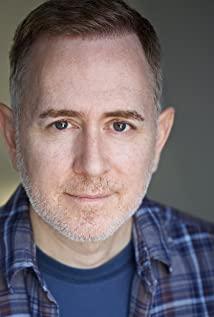"The original purpose of the constitutional guarantee of freedom of the press was to establish a fourth department outside the government to supervise the three official departments." - US Supreme Court Justice P. Stewart speech in 1974
Some time ago, my sister-in-law said that she wanted to work in the media after graduating from graduate school. Her sister knew that I used to be in the journalism department, so she was going to let us chat. Because she graduated from the Chinese Department and doesn't know much about the media, my first sentence was: Do you have a journalistic ideal? If you simply treat journalism as a job, it is actually quite difficult to do it. The salary is not high and the work is still tiring. If you can learn to sell your conscience to make money, you can do anything faster than the industry. In this golden age of the journalism industry both at home and abroad (the salary of the reporters mentioned in the video is hundreds of thousands, US dollars) has passed today, and I am still willing to engage in the real need of blood from time to time to generate electricity with love.
A large number of non-journalism professionals, as well as some of the practitioners who are studying and already working, always ask "Why do we not have such freedom of reporting" when watching such films. In the movie, NYT was banned from follow-up reporting for the first time after reporting on the "Pentagon Papers", and it was not until the Washington Post that more materials were released. Judges voted against. Would the press be free without Mrs. Graham's final insistence?
Let's first clarify the definition of journalistic idealism, in my eyes. Through reporting, the media promotes a better society. It may be that individuals have been helped (such as Baidu and “Wei Zexi”), or minority groups have benefited (such as the report on the prototype of the drug god “Lu Yong”, which has promoted the inclusion of drugs for rare diseases in medical insurance), or it may be that people at the bottom have improved their lives. (The Sun Zhigang incident caused the end of the containment system). The United States has even more words. For example, the "Pentagon Papers" reported in this film made people more opposed to the Vietnam War, which led to the eventual withdrawal of the United States from Vietnam. There are also incidents such as the "priest sexual assault" mentioned in the "Focus" movie, and the "Watergate Incident" in "The President's Team".
On the surface, this seems to be a very good thing. Both domestic and foreign media are really pushing the society forward because of the reports. But the more I watch the movie, the more desolate I feel. This is why I want to write an article to remind myself that it would be better if I could also remind you netizens. This is why the above reports are successful: because they speak out for some groups , the people agree, and they push social progress backwards.
So how do we define part of the group. List two events and taste them yourself.
1. Incident of 215 Aboriginal children at Kamloops Indian boarding school in Canada.
2. The Snowden "Prism" incident. This is also reported by the media first, and then.
Some of the discussions in the film did not actually unfold, and of course Lao Si may not think this is a problem.
"Because the White House has known for a long time that the war will not be won, just because it cannot afford to lose, so the war continues. So angry." So ask,
Q1: The White House doesn't know, thinks the war is complicated, it's a simple continuous war, hoping to win the Vietnam War through a game, is it worth being angry? McNamara actually mentioned in the film, this is a complex issue, willing to reflect, but do not want to be published.
Q2: Is anti-war a public consensus? The opposite is war, or continuous war? Or a war against America? War against America's advantage?
Finally, I want to remind myself that although it has been many years since I said goodbye to the news, when watching the news, I still need to be calm, objective, less sad and angry, and do more things that can promote social progress in reality, even if it is for a very small group.
View more about The Post reviews











